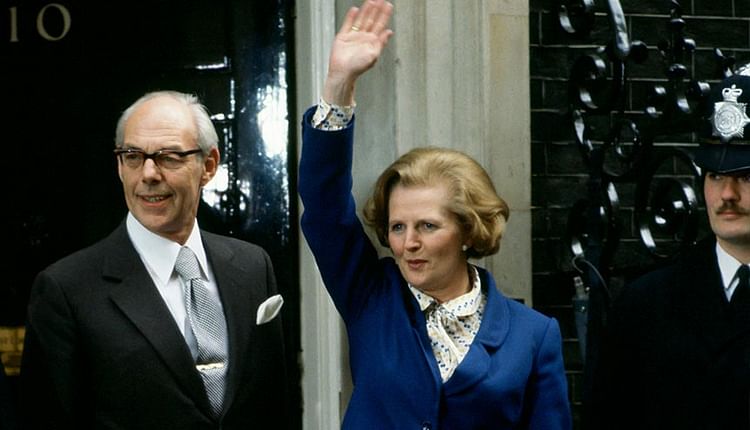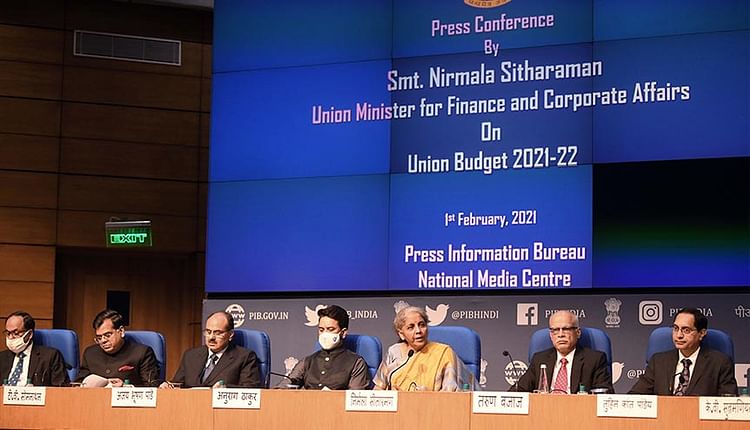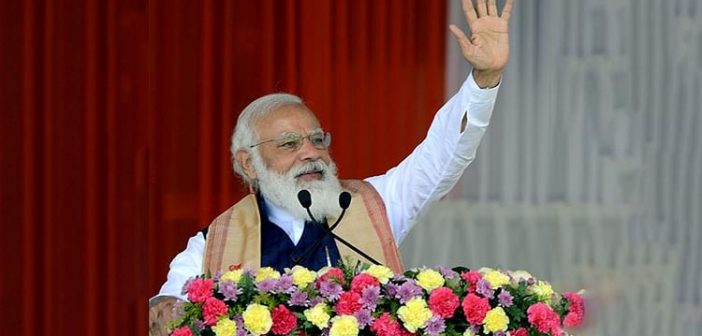Shedding the incrementalism that has marked much of India’s reform programmes, Indian Prime Minister Narendra Modi has gone the whole hog and bet on India’s intrinsic entrepreneurial spirit to pull the country out of its Covid-induced economic stupor and into the ranks of the world’s leading nations, writes India Inc Founder and CEO Manoj Ladwa.
The Budget delivered by India’s Finance Minister Nirmala Sitharaman is nothing short of a watershed moment for the Modi government.
It was outrageously bold and audacious in its outline, exceptionally reformist in intent and solidly realistic – and doable – in content. It bore, in blazing letters, the signature of the vintage, risk-taking, reformist Modi that has characterised much of his political life.
Although I personally don’t like making comparisons, as these tend to bring out as many anomalies as they to similarities about leaders, many people are already talking about this Budget as Modi’s “Thatcher moment”.
Recalling Thatcherism

Political history buffs and those who have watched the fourth season of the popular web series The Crown will know how Margaret Thatcher, a grocer’s daughter, became Prime Minister of an economically ailing United Kingdom and then – in the face of stiff and vocal opposition from the entrenched British elite, the trade unions and even sections of her own party – mixed muscular foreign policy with far-reaching domestic reforms that dragged Britain, kicking and screaming, back into the ranks of the world’s great nations from which it was in danger of falling out.
Thatcher unveiled a bold privatisation programme that transferred into the private sector inefficient public assets like British Airways and several other public sector companies. Thatcher also fought to curb the extreme militant tendencies of trade unions and unleashed largescale deregulation of the financial sector.
All these policies met with stiff opposition from influential quarters, led to long-drawn industrial strikes and strife in some parts of the UK. Even some of her closest allies argued that she was going too far, too deep, too quickly. But she stood firm in the face of strong headwinds and won the day, carrying the British people with her with repeated landslide elections victories. For all her faults (and there were many), Thatcher created the economically liberal shareholding democracy that even Tony Blair, despite huge and repeated majorities of his own, did not consider dismantling.
India offers unlimited potential in defence and aerospace. Aero India is a wonderful platform for collaborations in these areas. The Government of India has brought futuristic reforms in these sectors, which will add impetus to our quest to become Aatmanirbhar: PM Narendra Modi pic.twitter.com/yUCQeV7dAZ
— ANI (@ANI) February 3, 2021
Setting the stage
Modi has been setting the stage, over the last six years, to launch his agenda for transforming India. The bankruptcy law to end crony capitalism and the politician-bureaucrat-businessperson nexus, the Jan Dhan Yojana, the world’s largest and, I dare say, most successful financial inclusion scheme to take financial services to the doorsteps of the unbanked, the highly contested farm and labour law reforms, the steady improvements that have taken India’s ranking in the World Bank’s Ease of Doing Business Index up 73 places to the #69 were all pieces in an elaborate jigsaw puzzle that Modi was patiently putting together.
Privatisation, not disinvestment
Now, with most of the pieces in place, the big picture is becoming apparent. One key pointer to this is the fact that Finance Minister Nirmala Sitharaman did not dwell too much in her Budget speech on the word disinvestment. Instead, she preferred words and terms like privatisation and asset monetisation to describe the government’s proposals to give up ownership of two public sector banks and one insurance company in the coming financial year.
She also added, for good measure, that public brownfield assets such as roads and highways, ports, airports, etc., will be sold to private parties and the proceeds will be used to fund fresh rounds of infrastructure building.
Betting on the market

Then, eschewing advice from some well-meaning and other politically motivated quarters, the Modi government resisted strong calls to raise taxes. Instead, it has allowed space for the invisible hand of the market to play its part in raising the proverbial tide that will lift all the boats in the water. In other words, Modi has bet on policies that promise to elevate the overall growth levels in the economy rather than going for micro-management measures that have failed to deliver for India in the past.
Clearly, incrementalism and statism are the bad ideas whose time is up. Reforms and an unalloyed trust in India’s entrepreneurial spirits are the good ideas whose time has come. This Budget is proof of that. The time to ‘re-balance’ may indeed come in the future, but at this time, bold and stubborn leadership is what’s required.
Manoj Ladwa is the Founder and Chairman of India Inc. Group.







